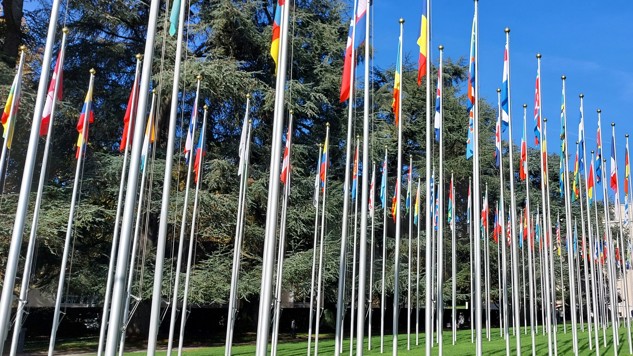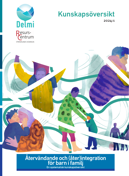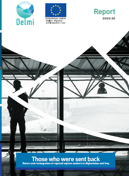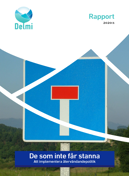The study is based on interviews with representatives of Swedish authorities and diplomatic missions in Sweden where several countries are represented. Among other things, the study shows that there are two main aspects to the return and readmission process. The first is the operational and logistical one, where government officials in Sweden work together with embassy staff at the consular level to handle specific cases related to the readmission by the countries of origin of persons who have no legal right to be in Sweden. The second aspect relates to return policy and focuses on the use of diplomatic tools to encourage and facilitate countries to accept their nationals under certain conditions. These tools can vary greatly depending on the situation of the country concerned, the composition of the returnee group and the existing relations between the countries involved.
Some overall conclusions and recommendations
- A systematic evaluation of migration diplomacy tools should consider what works and in which cases. Those tools that promote coordination should be considered as permanent functions within the return chain.
- Establish a programme for ongoing communication with diplomatic missions. There is a need for continuous information about Swedish migration rules and their changes - which have been many in recent years. A clear picture of the number of return decisions per country is also essential.
- It is essential to equip the Embassy Coordination Units and other relevant SMA officers with the necessary resources, including diplomacy training, appropriate tools, direct access to new representatives, and a comprehensive intercultural communication strategy that extends beyond return decisions.
- We propose redefining the concept of efficiency in return policy to prioritize not only the quantity but also the quality of returns, ensuring that they are conducted in a humane and sustainable manner. Additionally, we advocate for a more nuanced approach that considers the long-term outcomes and ethical implications of return decisions, rather than focusing solely on the removal of individuals.
- Bilateral agreements, whatever form they take, should be followed up and properly evaluated.
- Whenever an attentive presence is established in diplomatic missions, it is crucial to seize the opportunity to foster deeper relationships with countries of origin. Many diplomatic missions are interested in closer ties with Sweden, but are often engaged solely for return and readmission matters.
- When designing policies toward countries of origin, it is important to differentiate between general incentives and ad hoc incentives.
- Develop a comprehensive long-term strategy for managing return migration, ensuring that incentives and tools are tailored to the specific needs and conditions of each country of origin.
About the authors
The report was authored by Constanza Vera Larrucea, PhD in Political Science and research coordinator at Delmi, and Iris Luthman, MSc in Political Science and research coordinator at Delmi.
The report was published 23/9-2024






